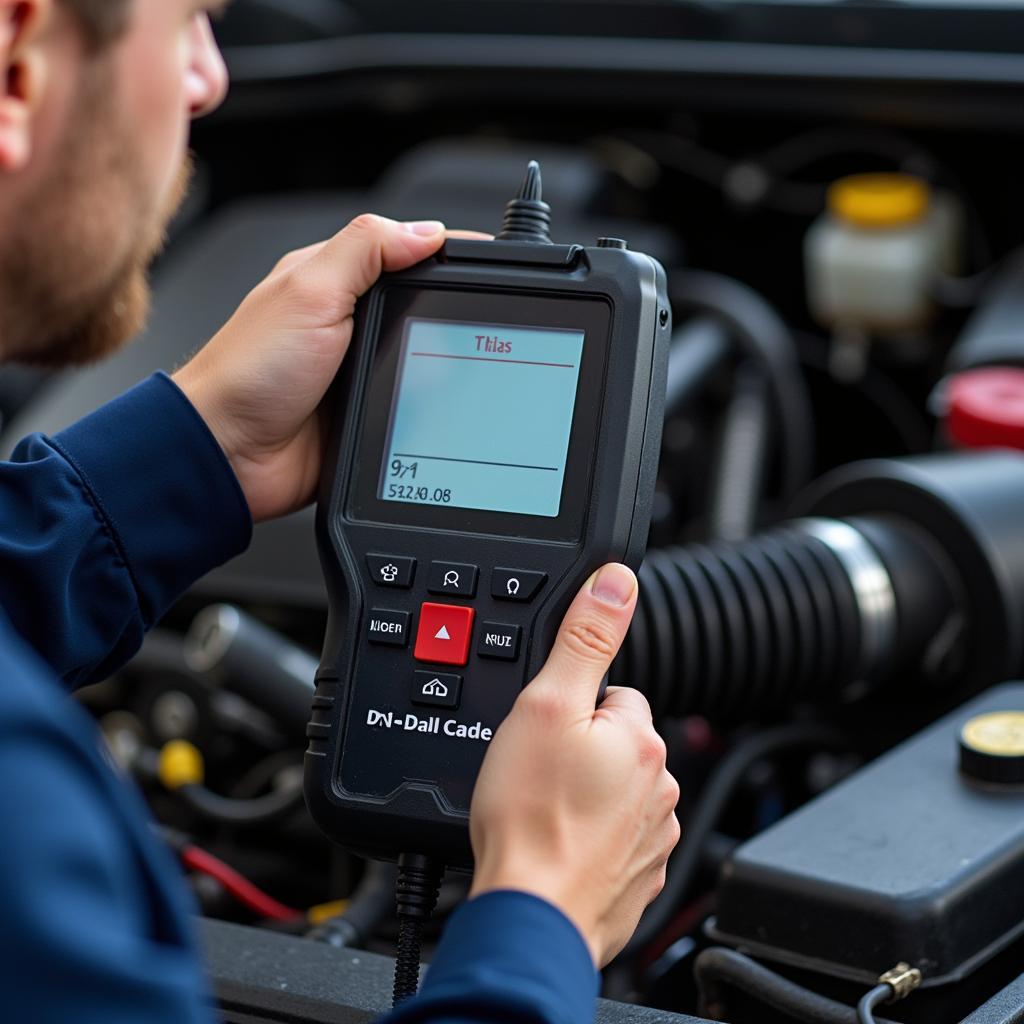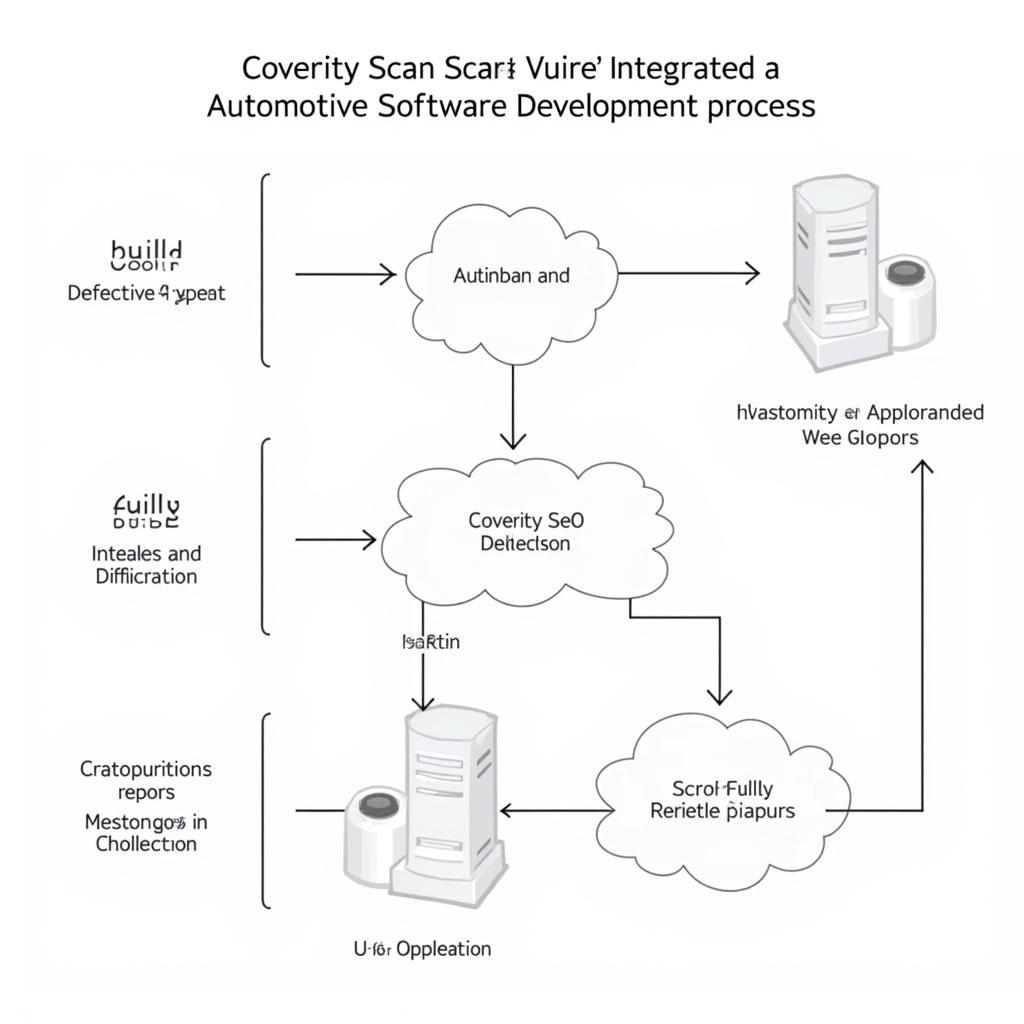For many car owners, the “check engine” light is a dreaded mystery. Instead of a helpful message, you get a cryptic symbol and a nagging sense of dread. But what if you could diagnose car problems yourself, right in your own garage? With the Best Car Scanner For Home Mechanics, you can.
A best diy auto scan tool empowers you to read and understand those pesky trouble codes, pinpoint the source of the problem, and even reset the light. No more expensive trips to the mechanic for a simple code reading!
Why Do You Need a Car Diagnostic Scanner?
Modern vehicles are complex machines, controlled by a network of computers and sensors. When something goes wrong, these computers log a Diagnostic Trouble Code (DTC) in the car’s computer (ECU). A car diagnostic scanner acts as the bridge between your car’s brain and yours.
Here’s how a good car scanner can benefit you:
- Save Money: Skip the mechanic’s fee for basic diagnostics and code reading.
- Save Time: Quickly identify issues and avoid unnecessary repairs.
- Gain Control: Understand your car’s health and make informed decisions about maintenance.
- Improve Resale Value: A well-maintained car with a clean diagnostic history is more attractive to buyers.
Choosing the Right Car Code Reader for Your Needs
Not all car scanners are created equal. The best car diagnostic tool for you depends on your budget, technical skills, and the make and model of your car. Here’s a breakdown to help you choose:
1. Basic Code Readers: For the DIY Beginner
If you mainly want to read and clear basic engine codes, a basic code reader is a great starting point. These are typically affordable and easy to use, even if you’re not a tech whiz.
- Pros: Affordable, simple to use, plugs directly into the OBD-II port.
- Cons: Limited functionality, may not work with all car makes and models.
2. Advanced OBD2 Scanners: For the Home Mechanic Enthusiast
For the more hands-on home mechanic, an advanced OBD2 scanner offers a wider range of features. You can access live data streams from your car’s sensors, view graphs and charts, and even perform some advanced diagnostics.
- Pros: More features, live data streaming, compatible with a wider range of vehicles.
- Cons: More expensive than basic code readers, may require some technical knowledge.
3. Professional-Grade Scan Tools: For the Serious DIYer
If you’re serious about car repair and want the most comprehensive diagnostics, a professional-grade scan tool is the way to go. These tools offer the same capabilities as the ones used by professional mechanics.
- Pros: Unmatched functionality, access to all vehicle systems, advanced programming and coding.
- Cons: Expensive, requires significant technical knowledge and experience.
Key Features to Look For in a Home Mechanic Car Scanner
Regardless of your budget or skill level, here are some essential features to consider when choosing a smart car scan tool:
- Compatibility: Ensure the scanner is compatible with your car’s make, model, and year. Most modern cars (1996 and newer) use the OBD-II standard.
- Code Reading and Clearing: The scanner should be able to read and clear both generic and manufacturer-specific codes.
- Live Data Streaming: Access real-time data from your car’s sensors to monitor performance and diagnose issues more effectively.
- User Interface: Look for a scanner with a clear, easy-to-navigate display and user-friendly controls.
- Software Updates: Choose a scanner that offers regular software updates to ensure compatibility with the latest vehicle models and technologies.
Common Car Problems You Can Diagnose Yourself
With the best scanning tool, you can often identify the source of many common car problems:
- Check Engine Light: Diagnose the reason behind the dreaded “check engine” light and determine if it’s a minor issue or something more serious.
- Sensor Problems: Identify faulty sensors, such as the oxygen sensor, mass airflow sensor, or throttle position sensor, which can affect engine performance and fuel efficiency.
- Emissions Issues: Diagnose problems with the evaporative emissions system, which can lead to fuel leaks and increased emissions.
- Battery and Charging System: Check battery voltage and charging system performance to ensure your car starts reliably.
 Mechanic Using Scanner
Mechanic Using Scanner
Tips for Using Your New Car Scanner
- Read the Manual: Familiarize yourself with the scanner’s features and how to use it properly.
- Locate Your OBD-II Port: The OBD-II port is usually located under the driver’s side dashboard.
- Start with the Basics: Begin by reading and clearing any trouble codes.
- Research Codes Online: Use online resources to understand the meaning of specific codes and potential solutions.
- Don’t Attempt Repairs Beyond Your Skill Level: If you’re not comfortable tackling a repair yourself, consult a qualified mechanic.
“A good car scanner is like having an X-ray vision for your car,” says automotive electronics expert, David Miller. “It gives you the power to see what’s going on under the hood and make informed decisions about your vehicle’s maintenance.”
FAQs About Car Scanners
Can I use any car scanner on any car?
No, not all scanners are universally compatible. Make sure to choose a scanner that’s compatible with your car’s make, model, and year.
What is the OBD-II port?
The OBD-II (On-Board Diagnostics) port is a standardized 16-pin connector found in most cars built after 1996. It allows access to the vehicle’s computer system for diagnostics.
Can a car scanner fix my car?
No, a car scanner is a diagnostic tool. It helps you identify problems, but it doesn’t fix them.
What if I clear a code and the check engine light comes back on?
If the code returns, it indicates an underlying issue that needs to be addressed. It’s best to investigate further or consult with a mechanic.
Are expensive car scanners worth it?
It depends on your needs. If you’re a serious DIYer or work on cars professionally, a more advanced scanner might be worth the investment.
Take Control of Your Car’s Health
Investing in the best car scanner for your needs is a smart move for any home mechanic. It’s a tool that can save you time, money, and frustration in the long run.
Ready to start diagnosing like a pro? Contact ScanToolUS today at +1 (641) 206-8880 or visit our office at 1615 S Laramie Ave, Cicero, IL 60804, USA. We can help you choose the perfect scanner for your needs and answer any questions you may have.


